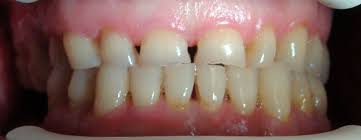Dentists are certainly the first on the list of doctors to avoid. Over 80% of people have some form of fear of a dentist and this is a phenomenon that is spread world-wide. Although today most dental procedures are painless, the fear is still present and some people are even afraid of the the dental examination. People who don`t visit a dentist are at a high … risk for gum disease and early tooth loss. Avoiding the dentist may also have an emotional toll. Stained and damaged teeth affect self-confidence and make people insecure. These people laugh less and keep the mouth partially closed while talking, while the embarrassment caused by bad appearance leads to frustrations and influence personal and professional life. Rotten and damaged teeth are a source of infections that affect the whole body.
The most common reasons for this fear that patients explain are the fear of pain, anesthesia or needles, fear of drills, a traumatic experience during previous interventions, violation of intimacy, a sense of helplessness and loss of control …

This is what psychologists say:
“When we talk about the fear of visiting a dentist, as with other fears, it is important to deal with situations that cause fear and not avoid them because it leads to fear growth and the emergence of phobias. Facing the fear should be planned in collaboration with a psychotherapist. It may be gradual, graduated exposure to the fearsome situations or it can be a sudden exposure. ”
Our advice is:
- Do not wait for painful phases, make an appointment for a preventive examination at the recommended dentist`s.
- Tell the dentist about your fear and past experience
- Appoint the visit when you have enough free time and when you’re not under a lot of stress.
- Ask the dentist to explain to you what will the intervention include, how it will be performed and how long it will take.
- Choose a dental officedial surgeries that are pleasant and bright with quiet music and kind dentists.
- Before the intervention, take a sedative.
- Come to the office with a companion who will be supportive during the visit.
- Make the following agreement with the dentist: the interventions will be performed one at a time and gradually, according to the severity, from less severe to more severe.


